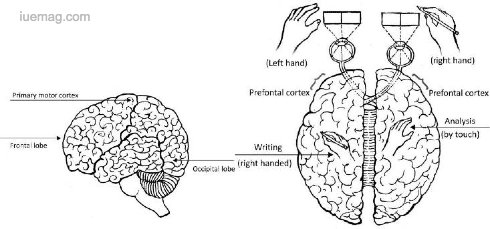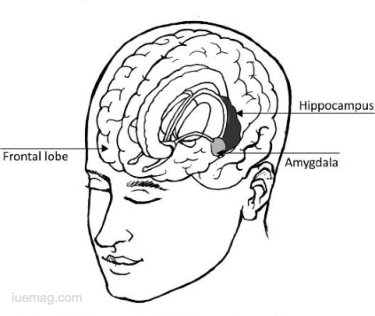

Why should we laugh? The Science behind Laughter

A Japanese proverb says “laughter is the music of soul”. The only man is capable of laughter, no other animal can laugh. It is a beautiful gift of the divine. Divinity knocks on the doors of a happy soul. A person who is full of laughter has the touch of the divine.
Laughter is the best medicine. It is available within us freely. It has been found that if a healthy person does not laugh, very soon he is bound to fall sick, whereas if a person can laugh even when he is sick he will become healthy soon. Each one of us possesses this valuable gift.
So, why not laugh and be merry?
What happens to us when we laugh?
Laughter can change almost everything within the body, mind, heart, brain, and soul…. from the surface to the inside….

Physical Self - Body
Mental Self - Mind
Emotional Self - Heart
Intellectual Self - Brain
Spiritual Self – Soul
Laughter and physical self
Laughter triggers healthy physical changes in the body.
Benefits
Norman cousins was a long-time editor of the Saturday Review, global peacemaker, the receiver of hundreds of awards including the UN Peace Medal and nearly 50 honorary doctorate degrees. In 1964 following a very stressful trip to Russia, he was diagnosed with ankylosing spondylitis (a degenerative disease causing the breakdown of collagen), which left him in almost constant pain and motivated his doctor to say he would die within a few months. He disagreed and reasoned that if stress had somehow contributed to his illness (he was not sick before the trip to Russia), then positive emotions should help him feel better. With his doctors’ consent, he checked himself out of the hospital and into a hotel across the street and began taking extremely high doses of vitamin C while exposing himself to a continuous stream of humorous films and similar “laughing matter”. He later claimed that 10 minutes of belly rippling laughter would give him two hours of pain-free sleep, when nothing else, not even morphine could help him.
Laughter makes you feel good from the inside. Laughter gives you courage and inner strength.
Benefits
 Relieves mental stress: Laughter helps to relax and recharge. It reduces stress and increases energy, enabling to stay focused
Relieves mental stress: Laughter helps to relax and recharge. It reduces stress and increases energy, enabling to stay focused
Adds joy and zest to life: Laughter dissolves distressing emotions. One cannot feel anxious, angry or sad during laughing
It enhances resilience (ability to recover from illness, change or misfortune): Laughter shifts perspective, allowing you to see situations in a more realistic, less threatening light. A light-hearted perspective creates a psychological distance, which helps avoid overwhelming feelings.
Laughter improves mood. A good laugh works faster to bring your mind and body back into balance.
Playful laughter builds communication and strengthens our relationships by triggering positive feelings and nurtures emotional connection
Benefits
Laughter changes the brain waves. It changes intelligence – it makes one more intelligent. The parts of the mind that have been asleep suddenly wake up. Laughter reaches the innermost part of your brain. Blood flow changes and brain cells become more active.
 Brain activity during laughter
Brain activity during laughter
What happens in the brain when we hear a joke?
The left side of the cortex (the layer of cells that covers the entire surface of the forebrain) analyses the words and structure of the joke. The right hemisphere of the cortex carries out the intellectual analysis required to "get" the joke.
The brain's large frontal lobe, which is involved in social-emotional responses, becomes very active. Brainwave activity then spreads to the sensory processing area of the occipital lobe (the area on the back of the head that contains the cells that process visual signals). Stimulation of the motor sections evokes physical responses to the joke.
Brain waves: The brain consists of millions and millions of neurons. These neurons communicate with each other via electrical impulses depending on the task one is doing (active thinking, sleeping, dreaming, meditating and so on). All neurons are not engaged. In a task like reading or calculating, many neurons are active. Active neurons send electrical impulses to one another, whereas fewer neurons are active during sleep. This makes sense since our brain is barely active in the sleeping phases. When these impulses are measured with an electroencephalogram (EEG) all these impulses result in a wave. These waves originate in the brain and are called brain waves, logically.
For example, in non-active thinking tasks like sleeping, these brain waves are rather slow and of low amplitude. In an active thinking task, these brain waves are quite fast and in a higher amplitude.
 Gamma waves: There are many different brain waves. Gamma waves are one of them. These waves improve alertness, creativity, and memory by engaging the brain. This, in turn, makes the immune system work better and changes brain wave activity towards what’s called a “gamma frequency”, ramping up memory and recall. Laughter engages the entire brain. Laughter leads to learning
Gamma waves: There are many different brain waves. Gamma waves are one of them. These waves improve alertness, creativity, and memory by engaging the brain. This, in turn, makes the immune system work better and changes brain wave activity towards what’s called a “gamma frequency”, ramping up memory and recall. Laughter engages the entire brain. Laughter leads to learning
Laughter changes intelligence as both the sides of the brain are engaged and the brain waves(gamma) also increase learning. Research indicates that laughter also increases endorphins, sending dopamine to the brain to provide a sense of pleasure and reward.
"Joyful laughter immediately produces the same brain wave frequencies experienced by people in a true meditative state," says Lee Berk, lead researcher of the study and associate professor of pathology and human anatomy at Loma Linda University.
(This article was written by Stephanie Eckelkamp and originally appeared on Prevention.com)
 Information about the limbic system (hippocampus + amygdala)
Information about the limbic system (hippocampus + amygdala)
 Laughter is a spiritual prayer. When we really laugh, for those few moments we are in a deep meditative state. It is a tremendous meditation state. When laughter arises out of meditation, it will be a totally different quality of laughter. It will be laughter about oneself.
Laughter is a spiritual prayer. When we really laugh, for those few moments we are in a deep meditative state. It is a tremendous meditation state. When laughter arises out of meditation, it will be a totally different quality of laughter. It will be laughter about oneself.
Osho highlighted that everything that we have has its counterparts in the body, in the mind and the soul. The purest will be in the soul and the crudest will be in the body.
The mind is just in the middle of the two; it will be half primitive, half cultured. That’s how all these three layers of the body function in harmony. When one has a real heartfelt belly laugh, all the parts of the being – the physiological, the psychological and the spiritual – they all vibrate in one single tune, they all vibrate in harmony. Hence, laughter relaxes. And relaxation is spiritual. Laughter brings one to reality as it is.
While this article is truly inspiring and insightful, the book Erupt With Joy has a lot more content that you cannot miss reading. The book is available both on amazon.com & amazon.in for you to grab a copy of your own.
- Boosts immunity - laughter boosts the immune system. Laughter decreases stress hormones and increases immune cells and infection-fighting antibodies, thus improving resistance to disease.
- Laughter triggers the release of endorphins, which are the happy hormones- the body’s natural feel-good chemicals. Endorphins promote an overall sense of well-being and can even temporarily relieve physical pain.
- Laughter protects the heart. Laughter improves the function of blood vessels and increases blood flow, which can help protect you against a heart attack and other cardiovascular problems.
Norman cousins was a long-time editor of the Saturday Review, global peacemaker, the receiver of hundreds of awards including the UN Peace Medal and nearly 50 honorary doctorate degrees. In 1964 following a very stressful trip to Russia, he was diagnosed with ankylosing spondylitis (a degenerative disease causing the breakdown of collagen), which left him in almost constant pain and motivated his doctor to say he would die within a few months. He disagreed and reasoned that if stress had somehow contributed to his illness (he was not sick before the trip to Russia), then positive emotions should help him feel better. With his doctors’ consent, he checked himself out of the hospital and into a hotel across the street and began taking extremely high doses of vitamin C while exposing himself to a continuous stream of humorous films and similar “laughing matter”. He later claimed that 10 minutes of belly rippling laughter would give him two hours of pain-free sleep, when nothing else, not even morphine could help him.
Laughter and mental self
Laughter makes you feel good from the inside. Laughter gives you courage and inner strength.
Benefits
 Relieves mental stress: Laughter helps to relax and recharge. It reduces stress and increases energy, enabling to stay focused
Relieves mental stress: Laughter helps to relax and recharge. It reduces stress and increases energy, enabling to stay focusedAdds joy and zest to life: Laughter dissolves distressing emotions. One cannot feel anxious, angry or sad during laughing
It enhances resilience (ability to recover from illness, change or misfortune): Laughter shifts perspective, allowing you to see situations in a more realistic, less threatening light. A light-hearted perspective creates a psychological distance, which helps avoid overwhelming feelings.
Laughter improves mood. A good laugh works faster to bring your mind and body back into balance.
Laughter and emotional self
Playful laughter builds communication and strengthens our relationships by triggering positive feelings and nurtures emotional connection
Benefits
- Let go of defensiveness - Laughter helps to forget judgments, criticisms, and doubts and thereby promotes group bonding and enhances teamwork
- Be more spontaneous - Laughter attracts others to us instantaneously
- Helps defuse conflict - Laughter keeps us away from troubles
- Release inhibitions– The fear of holding back and distress within are set aside
- Express true feelings -Deeply felt emotions are allowed to rise to the surface
Laughter and Intelligence Self
Laughter changes the brain waves. It changes intelligence – it makes one more intelligent. The parts of the mind that have been asleep suddenly wake up. Laughter reaches the innermost part of your brain. Blood flow changes and brain cells become more active.
 Brain activity during laughter
Brain activity during laughterWhat happens in the brain when we hear a joke?
The left side of the cortex (the layer of cells that covers the entire surface of the forebrain) analyses the words and structure of the joke. The right hemisphere of the cortex carries out the intellectual analysis required to "get" the joke.
The brain's large frontal lobe, which is involved in social-emotional responses, becomes very active. Brainwave activity then spreads to the sensory processing area of the occipital lobe (the area on the back of the head that contains the cells that process visual signals). Stimulation of the motor sections evokes physical responses to the joke.
Brain waves: The brain consists of millions and millions of neurons. These neurons communicate with each other via electrical impulses depending on the task one is doing (active thinking, sleeping, dreaming, meditating and so on). All neurons are not engaged. In a task like reading or calculating, many neurons are active. Active neurons send electrical impulses to one another, whereas fewer neurons are active during sleep. This makes sense since our brain is barely active in the sleeping phases. When these impulses are measured with an electroencephalogram (EEG) all these impulses result in a wave. These waves originate in the brain and are called brain waves, logically.
For example, in non-active thinking tasks like sleeping, these brain waves are rather slow and of low amplitude. In an active thinking task, these brain waves are quite fast and in a higher amplitude.
 Gamma waves: There are many different brain waves. Gamma waves are one of them. These waves improve alertness, creativity, and memory by engaging the brain. This, in turn, makes the immune system work better and changes brain wave activity towards what’s called a “gamma frequency”, ramping up memory and recall. Laughter engages the entire brain. Laughter leads to learning
Gamma waves: There are many different brain waves. Gamma waves are one of them. These waves improve alertness, creativity, and memory by engaging the brain. This, in turn, makes the immune system work better and changes brain wave activity towards what’s called a “gamma frequency”, ramping up memory and recall. Laughter engages the entire brain. Laughter leads to learningLaughter changes intelligence as both the sides of the brain are engaged and the brain waves(gamma) also increase learning. Research indicates that laughter also increases endorphins, sending dopamine to the brain to provide a sense of pleasure and reward.
"Joyful laughter immediately produces the same brain wave frequencies experienced by people in a true meditative state," says Lee Berk, lead researcher of the study and associate professor of pathology and human anatomy at Loma Linda University.
(This article was written by Stephanie Eckelkamp and originally appeared on Prevention.com)
 Information about the limbic system (hippocampus + amygdala)
Information about the limbic system (hippocampus + amygdala)- Seat of learning and memory
- Regulates moods and emotions
- Controls laughter, friendship. Love and affection
- Changes brain-wave patterns
- Hippocampus – center for generation of new neurons (neurogenesis) with exercise and reduced stress levels
- Memory Retention is high
Laughter and spiritual self
 Laughter is a spiritual prayer. When we really laugh, for those few moments we are in a deep meditative state. It is a tremendous meditation state. When laughter arises out of meditation, it will be a totally different quality of laughter. It will be laughter about oneself.
Laughter is a spiritual prayer. When we really laugh, for those few moments we are in a deep meditative state. It is a tremendous meditation state. When laughter arises out of meditation, it will be a totally different quality of laughter. It will be laughter about oneself. Osho highlighted that everything that we have has its counterparts in the body, in the mind and the soul. The purest will be in the soul and the crudest will be in the body.
The mind is just in the middle of the two; it will be half primitive, half cultured. That’s how all these three layers of the body function in harmony. When one has a real heartfelt belly laugh, all the parts of the being – the physiological, the psychological and the spiritual – they all vibrate in one single tune, they all vibrate in harmony. Hence, laughter relaxes. And relaxation is spiritual. Laughter brings one to reality as it is.
While this article is truly inspiring and insightful, the book Erupt With Joy has a lot more content that you cannot miss reading. The book is available both on amazon.com & amazon.in for you to grab a copy of your own.
Copyrights © 2026 Inspiration Unlimited - iU - Online Global Positivity Media
Any facts, figures or references stated here are made by the author & don't reflect the endorsement of iU at all times unless otherwise drafted by official staff at iU. A part [small/large] could be AI generated content at times and it's inevitable today. If you have a feedback particularly with regards to that, feel free to let us know. This article was first published here on 25th May 2020.
Want to Publish About Your Business / Achievements
Let's Discuss Right Away!

All chats are end-to-end encrypted by WhatsApp and won't be shared anywhere [won't be stored either].

